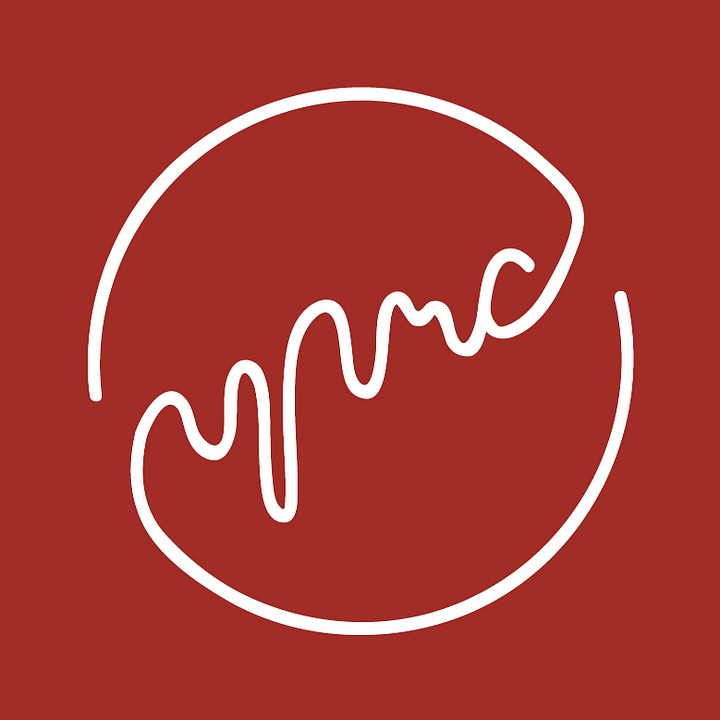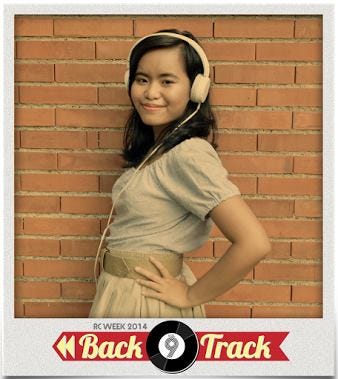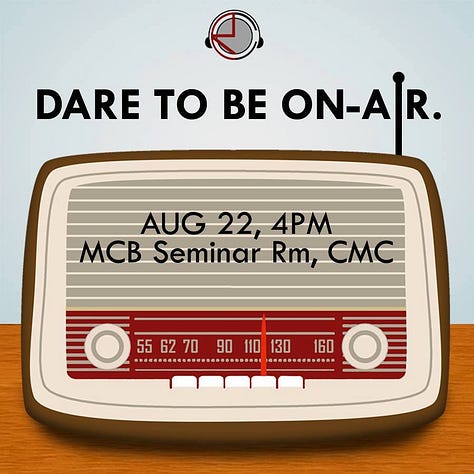How university student org culture taught me about work ethic and the importance of a great work culture
Because student orgs shouldn't just be about hanging out or filling up a resume

As a wide-eyed freshman at the University of the Philippines Diliman (UPD) over a decade ago, my brain was buzzing with excitement, curiosity, and a tinge of anxiety. What profs should I avoid? What PE should I take? Where was this building?
Like many of my peers, I was taken on what felt like half a dozen tours and orientations about campus life. There were pamphlets, social media announcements, Facebook groups, Tumblr posts, and so much more!
And the bulk of this info came from a key part of college life: student organizations.

I had heard about the importance of student orgs online and from my mom (a UP grad herself). These were where you gained a sense of community, made friends, and started networking. You could gain leadership experience, too. Oh, and having cool stuff to put on your first resume didn’t hurt, either.
But what I didn’t know (yet) was that joining an org gave students a headstart on building our work ethics, let us experience “work culture”, and taught us about being a mentee and mentor. It was essentially a long-term immersion with glimpses into workplace dynamics and chances for personal and professional growth.
Since UP is a state university, student org work isn’t sponsored or compensated. (I think this doesn’t apply to some private universities.) Sure, there was a faculty advisor to support you, plus offices and benefits like having a “tambayan” (place to hang out in). But funds for events, Christmas parties, or team-building exercises? We all had to chip in or create fundraisers.
You also didn’t get any extra credit or improve your grades by joining an org. But you did get to be part of cool projects, you had built-in friends in some classes, and your older orgmates would often give tips on how to do well in school!
Choosing a student org


I chose my first and only org, DZUP Radio Circle (RC for short, now known as UP Radio Circle) because of three things:
I discovered the campus radio station early on and was instantly curious about the org that supported it. I still remember tuning in to DZUP 1602 via online tuner. “Solitary North Star” by The Camerawalls was playing. I liked the song, and messaged the station to ask for the title. I loved that they replied so quickly and nicely!
I was a Maskom student, and RC is a Maskom org. I was head-over-heels psyched about my course and college, so why look any further? Plus, having orgmates who knew the faculty, subjects, and other ins and outs of Maskom life was an advantage.
I appreciated the org’s culture and purpose right from the very start. RC, as an org, was always deeply rooted in mass communication and practical applications of what Maskom students learned in the classroom. Culture-wise, the people weren’t snobbish or intimidating. There were members from different colleges, too, so you could meet people from Engineering, Tourism, and so on. Compared to other orgs I’d heard about, RC was on the friendly end - no strict hierarchies or emotional hazing. To us applicants, the members were pretty much older siblings who loved to talk about everything from classes to crushes!
Later in college, I’d get asked why I didn’t join any other orgs. And honestly? It was just because nothing else spoke to me the way RC did. Culture-wise, people-wise, purpose-wise. Sure, I could’ve tried to find somewhere else to fit in, if only for the resume-padding (LOL). But if my heart wasn’t in it, I knew I would have had difficulty finding the time and energy for it.
Life within the (Radio) Circle



As a member of RC, org duties weren’t just about us putting up events, selling doughnuts to raise funds, or participating in university events.
Since we were the student arm of the campus radio station, we had duties to the station team, professors, and listeners.
We had to produce, write, direct, host, promote, and do tech duties for the shows we handled. We didn’t just have the typical committees other orgs had (Finance, Publicity, Membership, Events) - we also had program teams. We answered not just to our committee heads, but to the executive producers of our program teams. And the committee heads and executive producers? They were our orgmates, and they were students, too.
To support the radio station, we were called on to cover events like the SONA (State of the Nation Address), Lantern Parade, and campus elections. I still remember how nerve-wracking yet exciting my first coverage was!
Every week, we had strict call times, standards to meet, and projects to juggle. These were the duties - and perks - we signed up for as part of RC.
And of course, all this was on top of classes, homework, part-time jobs, internships, family life, and social life.
As my batchmates and I went from applicants to members, “baby mems” to those in ExeComm (the Executive Committee), I saw that those who valued good work ethic naturally grew closer. We hung out more often. We did our best to attend all the org events. We were at the fun stuff - applicant interviews and photoshoots - and the hard stuff - like pre-event emergency meetings and fundraiser remittance days.
Year-on-year, we’d see first-hand how older members would tap and train those next in line. We’d see how they tried to get inactive members to participate, or at least share why they couldn’t at the time.
Eventually, we became the older members, deciding where to place new members, balancing new ideas with the traditions our alumni would expect, training those next in line, and doing all we could to set the org up for success.
From org culture to work culture
Even now, almost 9 years after I left college, I am struck by how informative and influential my time at RC was when it comes to navigating professional life. All those lessons about collaboration, initiative, discipline, leadership, and willingness to learn are so embedded in my system, I can’t imagine surviving without them.
Looking back at where I’ve worked, how I would decide on a company to join, and the culture in those workplaces, I’ve found that it was my time at RC that truly became my roadmap, my baseline, for what stands out as a great place to work.
Back in college, we never called our org a “family” - we were a team, and family was family. The best workplaces I’ve joined are the same.
RC applicants had buddies to guide them through the app process. And sometimes these buddies would become mentors throughout their stay in the org, or people would find their own mentor figures within their committee or the program team they joined. I’ve seen this happen at work as well, especially within my current team.
People in RC would laugh together, but also buckle down together. We had the professionalism to get through projects and episodes of the radio programs, but the empathy and camaraderie to support each other through tough times. The same is true with the friends I’ve made at work. And what’s beautiful about this is that sometimes, the care and connection transcend time together in RC or the workplace. I have good friends to this day who were once orgmates or officemates.
My #1 tip for college freshies? Don’t just join an org - join and enjoy a GOOD org.
If you or someone you know is in college, here’s my advice: join a good student org. One where the culture is something you can vibe with, one with good people who are there to pull you up, not push you down. And yeah, it helps if you can find one that aligns with your course or at least a hobby you want to nurture.
Oh, and don’t fall into the “BS Org” trap and neglect schoolwork just to be part of 5 different organizations or clubs.
Start with one that looks and feels right, then once you’re in, maximize it and enjoy the opportunities there! Sign up for projects, participate and collaborate, get to know people outside your little bubble. It might be the best decision you’ll ever make! ;)





❤️❤️❤️
wish I've read this last 2023, thank you so much for sharing! 🤍🌷